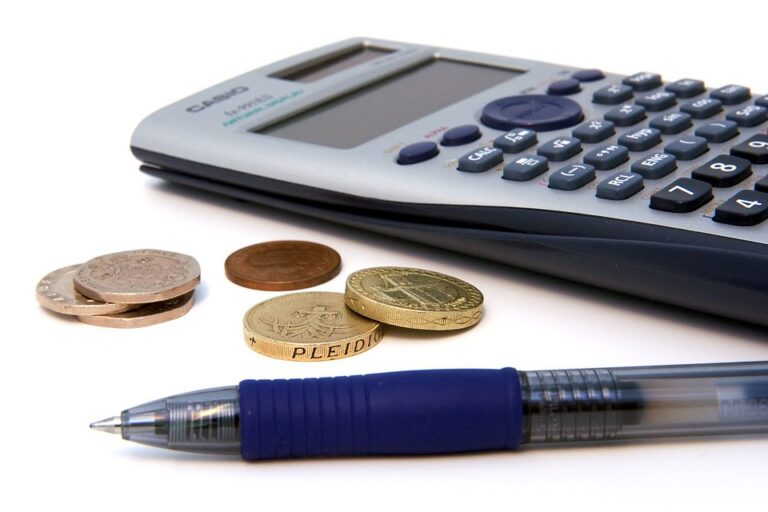Last updated Jun. 23, 2024 by Peter Jakes
The Economic Impact Payment (EIP), commonly known as the stimulus check, has indeed been a lifeline for many Americans during times of economic distress. The purpose of these payments is to provide direct financial assistance to individuals and families to help them make ends meet, stimulate broader economic activity, and ensure a level of stability during uncertain times. With multiple rounds of stimulus payments issued, it is crucial to understand if you qualify, how to claim the payment, and the economic implications associated with it.
Here, we delve deep into the specifics of the Economic Impact Payment to help you understand your eligibility and guide you through the process of claiming what you might be entitled to.
Understanding Economic Impact Payments
What Are Economic Impact Payments?
Economic Impact Payments are direct payments made by the federal government to eligible individuals and families to mitigate the financial challenges brought on by unforeseen circumstances, such as the COVID-19 pandemic. These payments are non-taxable and aimed at providing immediate relief to manage expenses, thereby stimulating the economic activity by boosting direct spending.
Who Is Eligible for Economic Impact Payments?
Your eligibility for the Economic Impact Payment depends on several factors:
-
Income Level: Income thresholds vary and usually depend on your adjusted gross income (AGI) from your most recent tax return.
- Single filers: Generally, if you have an AGI of up to $75,000, you are eligible for the full payment. The payment phased out completely for those making more than $99,000.
- Married filing jointly: Couples with an AGI of up to $150,000 qualify for the full payment, and it phased out for those earning more than $198,000.
- Head of Household: Those with an AGI of up to $112,500 qualify for the full payment, and it phased out for those earning more than $136,500.
-
Dependency Status: If someone can claim you as a dependent on their tax return, you are not eligible for an Economic Impact Payment.
-
Citizenship and Residency: You must be a U.S. citizen or a resident alien with a valid Social Security number.
- Filing a Tax Return: Filing a recent tax return is significant as the IRS uses this information to calculate and deliver economic impact payments. Even non-filers are encouraged to submit basic tax information to get their payments.
How Much Can You Expect to Receive?
The amount received depends on your filing status, income, and the number of dependents:
- First Round: Up to $1,200 per adult and $500 per qualifying child.
- Second Round: Up to $600 per adult and $600 per qualifying child.
- Third Round: Up to $1,400 per adult and $1,400 per qualifying child.
Each round may have variations in the definitions and inclusivity of dependents. Ensuring you check the latest guidelines is key.
✓ Short Answer
Economic Impact Payments are direct, non-taxable payments from the federal government to eligible individuals and families to provide financial relief and stimulate economic activity. Eligibility typically depends on income level, citizenship or residency status, and tax filing history. Amounts vary by recipient’s filing status, income, and dependent count.
✓ Short Answer
Economic Impact Payments are direct, non-taxable payments from the federal government to eligible individuals and families to provide financial relief and stimulate economic activity. Eligibility typically depends on income level, citizenship or residency status, and tax filing history. Amounts vary by recipient’s filing status, income, and dependent count.
How to Claim Your Payment?
Filing Taxes
Filing your most recent tax return is a crucial step to ensure you receive your payment. The IRS utilizes your latest tax data to determine eligibility and the amount you qualify for.
Non-Filers Need to Act
If you were not required to file taxes in recent years but believe you qualify for an Economic Impact Payment, it is essential to submit your information using the IRS’s "Non-filers: Enter Payment Info Here" tool available on their website. This tool helps ensure that those who typically do not file taxes receive their payments.
Additional Documentation
Some personal interfaces might need extra documentation, such as identification verification or providing additional income information, especially in situations where tax records show discrepancies.
Delivery of Economic Impact Payments
Direct Deposit
For those who have provided bank details within their tax returns, the Economic Impact Payments can be deposited directly into their accounts, which is usually the fastest method.
Paper Checks and Debit Cards
For individuals who have not provided bank details, payments can be issued as paper checks or prepaid debit cards mailed to your address on record.
Common Issues and Resolutions
Missing Payments
If you believe you are entitled to a payment but have not received it, there are several steps to remedy the situation. Often, it involves checking the IRS’s "Get My Payment" tool for status updates or filing for a Recovery Rebate Credit when submitting your next tax return.
Undelivered Payments
In cases where payments are sent to outdated or incorrect mailing addresses, it is crucial to update your address with the IRS and work with them to trace and reissue the payment.
Payment Errors
Errors in calculation or payment amounts can be addressed by reviewing eligibility criteria and ensuring all dependent information is correctly filed.
FAQs on Economic Impact Payments
What Should I Do If I Haven’t Received My Payment?
If you haven’t received your payment, use the IRS "Get My Payment" tool to check the status. If still unresolved, you may need to file a Recovery Rebate Credit on your next tax return.
Can I Get the Payment if I Don’t File Taxes?
Yes, you can use the "Non-filers: Enter Payment Info Here" tool on the IRS website to submit your information.
Are These Payments Taxable?
No, Economic Impact Payments are not considered taxable income. They do not affect your tax refunds or owed amounts.
What if My Income Dropped Recently?
If your income has dropped significantly or if you just became eligible for an Economic Impact Payment after the initial distribution, be sure to reflect these changes on your next tax return. You might be able to claim a Recovery Rebate Credit.
What About Dependents?
Dependents under 17 generally qualify their guardians for additional payments. Ensure all dependents’ information is correctly filed in your tax returns to maximize the amount received.
What Happens if a Dependent is Incorrectly Claimed?
Should there be an error in listing dependents, you might need to resolve this through the IRS’s amendment options or during the filing of your next tax return to claim missed amounts through tax credits.
Is There a Deadline to Claim My Payment?
Yes, while initial rounds might have specific deadlines to claim the payment, ensuring timely tax filing and compliance with IRS deadlines is essential. Late claims may still be possible through the Recovery Rebate Credit on subsequent tax returns.
Can Non-Citizens Receive Payments?
Economic Impact Payments are primarily for U.S. citizens and resident aliens with valid Social Security numbers. Non-citizens qualify if they meet the residency and identification criteria stipified by the IRS.
How Can I Track My Payment?
The IRS provides a “Get My Payment” tool on their website to check the status of your EIP.
I Received a Prepaid Debit Card, What Next?
If you receive a prepaid debit card, follow the instructions sent with it to activate and use it. You can use it to make purchases, withdraw cash, and even transfer money to a personal bank account.
What If I Need Assistance?
For issues regarding economic impact payments, the IRS website offers a wealth of resources. Additionally, tax professionals can provide personalized advice tailored to your situation.
Economic Impact Payments serve as an essential support element, aiming to offer financial stability and stimulate the economy during turbid times. Your eligibility hinges on your income, citizenship status, and recent tax filings. Knowing how to claim your due share is crucial in ensuring you meet your financial needs, and navigating the complexities with the right advice and resources at your disposal will always be to your advantage.







